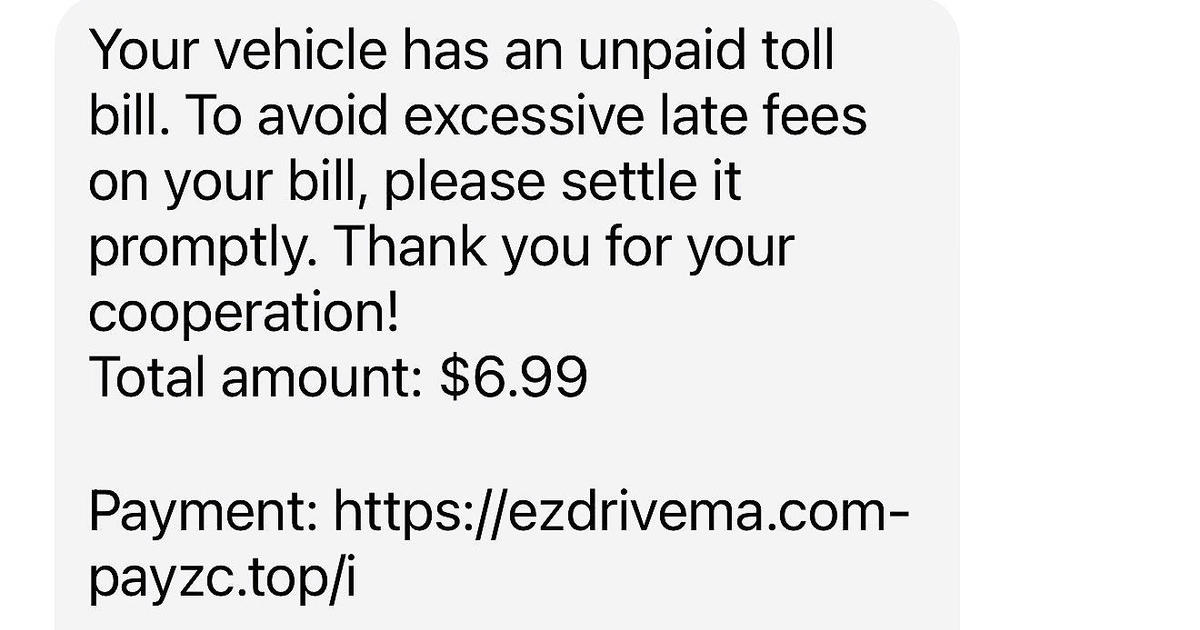Watch CBS News
By Riley Rourke
/ CBS Boston
BOSTON – A texting scam targeting drivers in Massachusetts has resurfaced. It claims that drivers owe money for unpaid E-ZPass tolls through EZDriveMA.
The scam first appeared back in June and recently surged again during the holidays, according to the Massachusetts Department of Transportation (MassDOT).
The scammers target drivers using “smishing” where they send a text or email saying they are part of the tolling agency. They claim that a driver has an unpaid toll and that they should settle their bill using a link provided before late fees occur.
“They’re really playing to your psyche, asking you to make sure you avoid these charges and try to do the right thing. And unfortunately, it really gets people roped in,” MassDOT Highway Administrator Jonathan Gulliver told WBZ-TV Friday.
MassDOT urges customers to never click links sent by unknown numbers or emails. They emphasized that they will never send a bill or any information through a text message.
Gulliver says the scam targets people with phone numbers near tolling authorities. The scammers do not have any specific information about their targets but hope to get personal and financial information through the link. He said that he personally received one of the messages.
Dartmouth Police issued a warning to residents about the scam making the rounds again, saying that an officer personally received one of the messages.
If you think you have received a scam text message, officials say you should not click on any links, do not respond to the message, and do not give out any personal information. They advise people to ignore the message completely and delete it before interacting with it.
If you are concerned about a message, you can validate the authenticity of it by going directly to the toll website or calling the toll authority at 877-627-7745.
If you have already clicked on a link, MassDOT recommends taking precautions to secure your financial and personal information and disputing any unknown charges through your bank.
“First thing you should do, don’t call us. Call your bank or your credit card. If you have already given them some information, make sure you put a hold on whatever account you have, work with their fraud unit to make sure that you’re not exposing yourself to anything more,” Gulliver said.
If you believe you have received one of these scam text messages, you can file a complaint with the FBI through the Internet Crime Complaint Center (ICC).
This type of “smishing” scam surged in Massachusetts in 2024. The scam similarly included an invoice advising people to settle an overdue EZDriveMa bill using a provided link.
A retired FBI agent said the scam was successful because it collected cash in small amounts and that people may not have been aware that they had passed through a toll.
Riley Rourke is a digital producer for CBS Boston. She graduated cum laude from Emerson College with a degree in Journalism in 2023.
© 2025 CBS Broadcasting Inc. All Rights Reserved.
©2025 CBS Broadcasting Inc. All Rights Reserved.
EZDriveMA text message scam resurfaces. Here's what Massachusetts drivers should do if you get one. – CBS Boston

